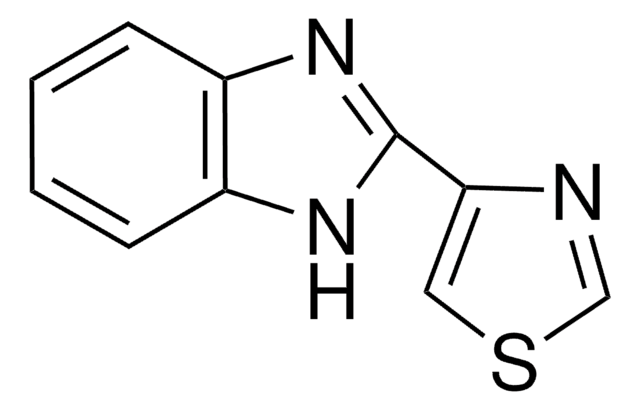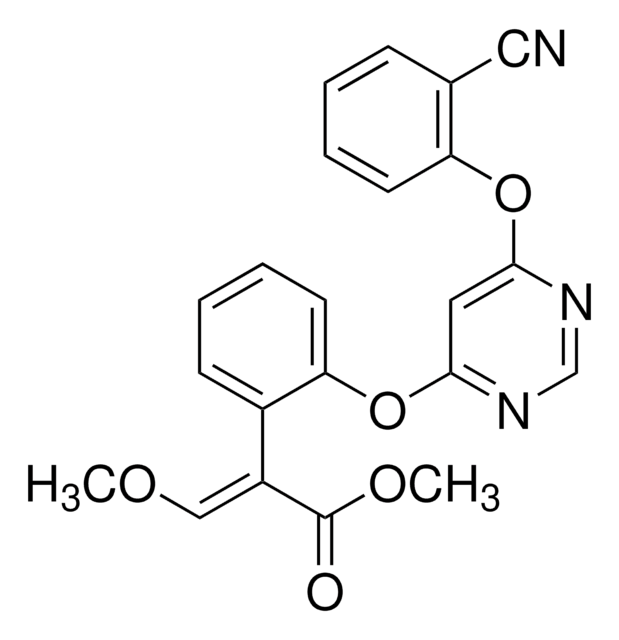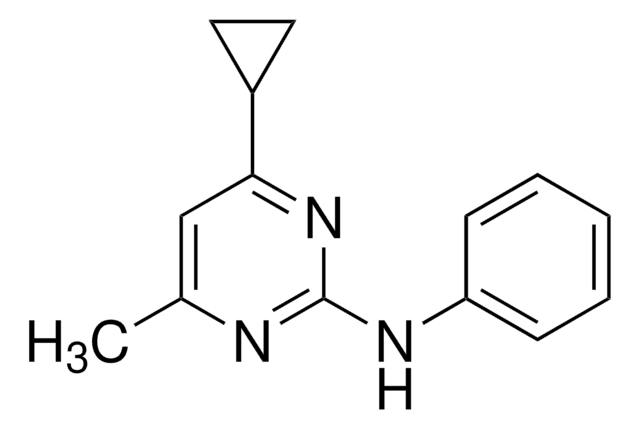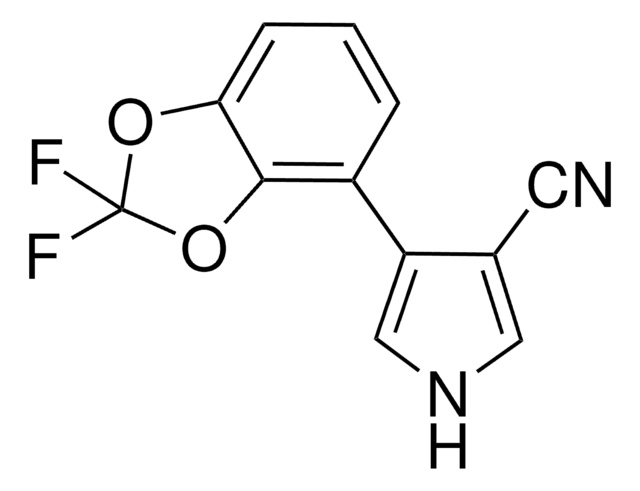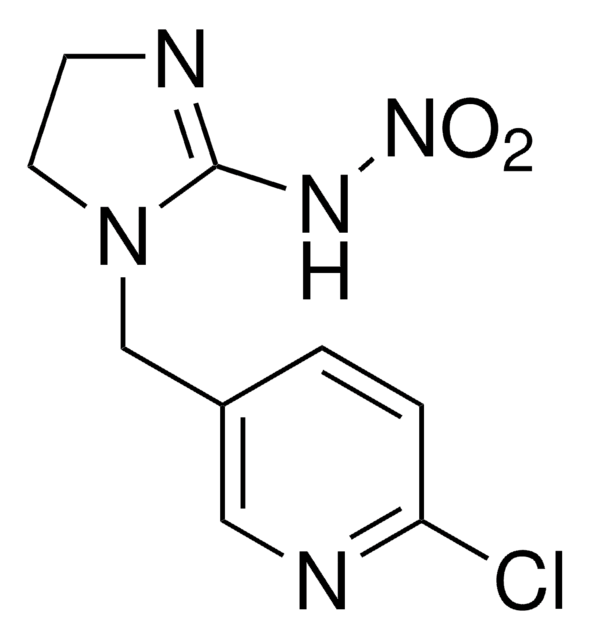378674
Carbendazim
97%
Synonym(s):
BCM, Methyl 2-benzimidazolecarbamate, Methyl benzimidazol-2-ylcarbamate
About This Item
Assay
97%
form
powder
mp
>300 °C (lit.)
solubility
pyridine: soluble 1%, clear, very faintly brownish-yellow
SMILES string
COC(=O)Nc1nc2ccccc2[nH]1
InChI
1S/C9H9N3O2/c1-14-9(13)12-8-10-6-4-2-3-5-7(6)11-8/h2-5H,1H3,(H2,10,11,12,13)
InChI key
TWFZGCMQGLPBSX-UHFFFAOYSA-N
Looking for similar products? Visit Product Comparison Guide
General description
Application
- As positive control in direct contact assay (mycelial radial growth inhibition assay).
- As pesticide and its effect on the transcription responses of Enchytraeus albidus have been studied.
- As broad-spectrum antifungal compound, to study the antibacterial action of anti-tuberculosis drugs against Mycobacterium tuberculosis in the Dubos broth culture medium.
Signal Word
Danger
Hazard Statements
Precautionary Statements
Hazard Classifications
Aquatic Acute 1 - Aquatic Chronic 1 - Muta. 1B - Repr. 1B - Skin Sens. 1
Storage Class Code
6.1C - Combustible acute toxic Cat.3 / toxic compounds or compounds which causing chronic effects
WGK
WGK 3
Flash Point(F)
Not applicable
Flash Point(C)
Not applicable
Personal Protective Equipment
Certificates of Analysis (COA)
Search for Certificates of Analysis (COA) by entering the products Lot/Batch Number. Lot and Batch Numbers can be found on a product’s label following the words ‘Lot’ or ‘Batch’.
Already Own This Product?
Find documentation for the products that you have recently purchased in the Document Library.
Customers Also Viewed
Our team of scientists has experience in all areas of research including Life Science, Material Science, Chemical Synthesis, Chromatography, Analytical and many others.
Contact Technical Service


